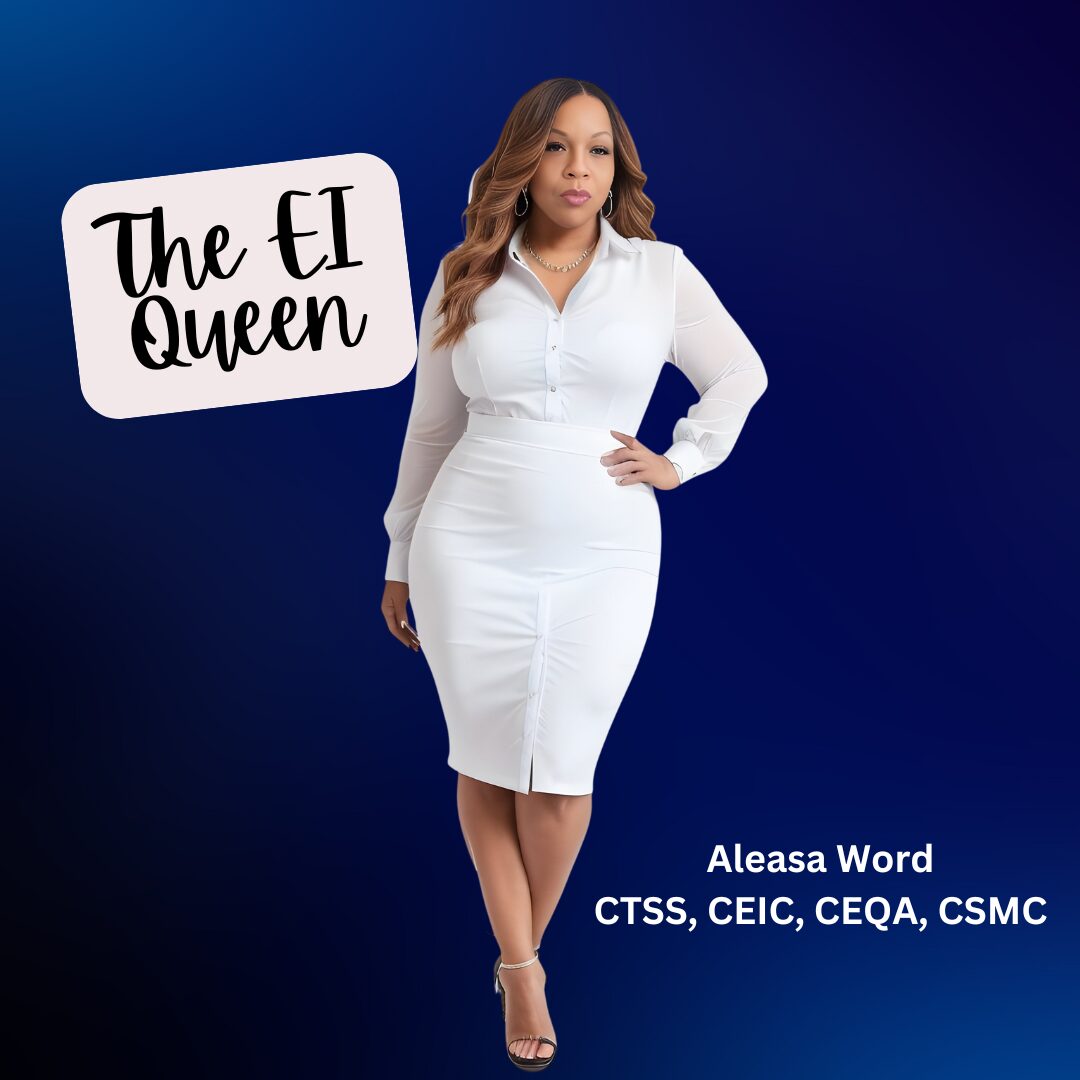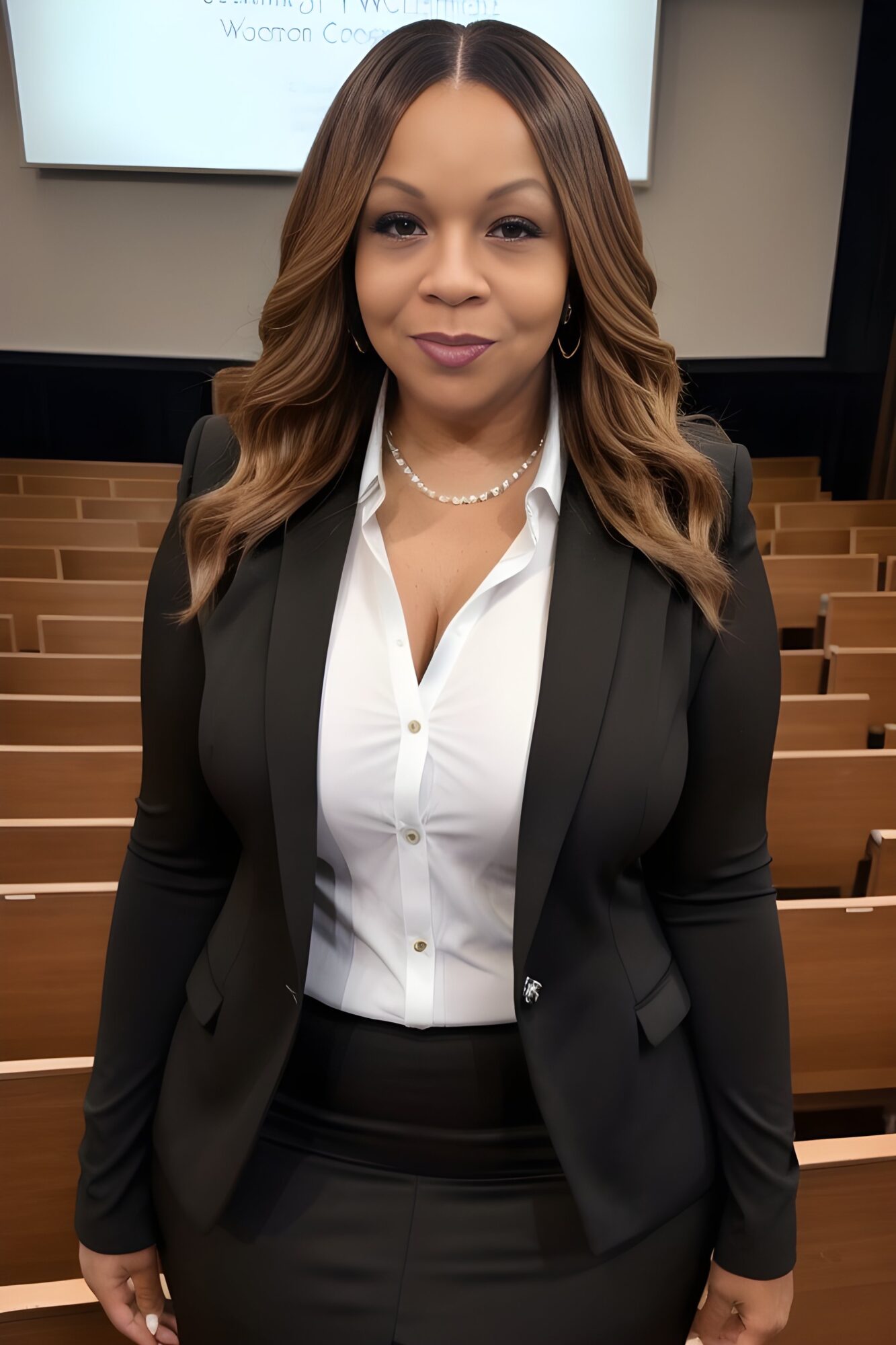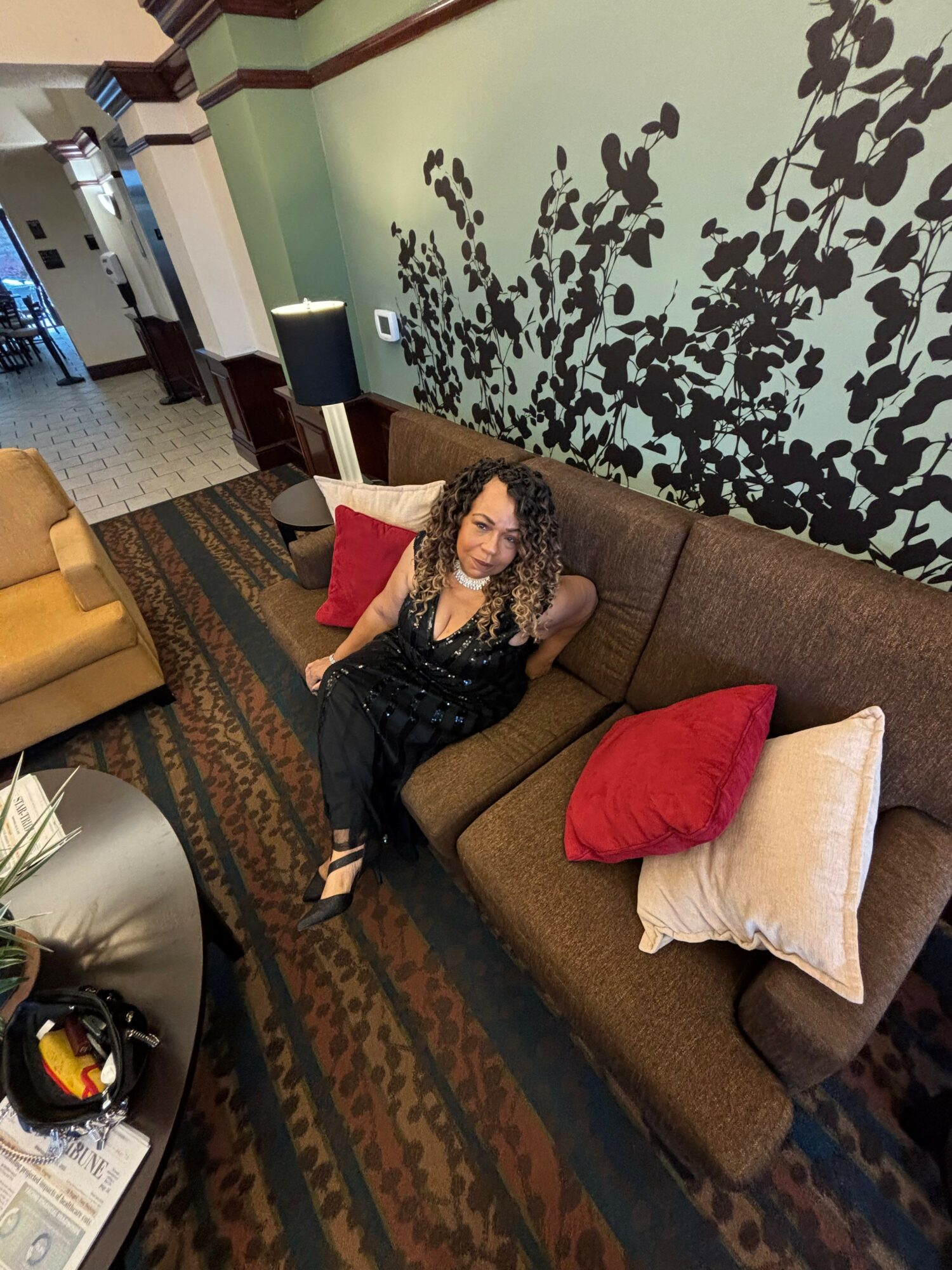

Aleasa Word shared their story and experiences with us recently and you can find our conversation below.
Aleasa, so good to connect and we’re excited to share your story and insights with our audience. There’s a ton to learn from your story, but let’s start with a warm up before we get into the heart of the interview. What do you think others are secretly struggling with—but never say?
I think the average person is struggling with self-forgiveness. Self-forgiveness requires us to take an honest look at ourselves and our behaviors. It means that we have to be authentic in the mirror and that’s not always fun. Because we are humans, we are naturally flawed. Those flaws, however are what make us amazing as it is a foundation for .our ability to learn from those flaws and grow. With that said, there are some who have a significant aversion to shame and guilt. Those feelings, especially shame, can be so intense that it triggers the pain center in their brain and they avoid it at all costs much like we would avoid a hot stove if we knew what that felt like.
As adults, we must realize we would do well to teach children at an early age how to be resilient in relationship to shame. We say things like “you should be ashamed of yourselves to children” when they make mistakes. In essence, I think what adults are really saying to kids in that statement is that we should be able to look at ourselves and take a reflective view because we can do better than the choice the child made. However, that full statement is not always received appropriately by children because we as adults do what many do and rely on inference versus explaining in detail what we mean. Children understand things at their level of comprehension based on developmental growth.. Research shows our brains continue to develop well into our 20s. So imagine a child being expected to fully understand something that a 26 year old or 35 year old understands without the proper context. Unfortunately, they begin to define that as something different and if that’s not countered properly, they take that definition with them throughout life, and it becomes hardwired in their brain. That has a potential to then cause them to have an extreme, often self-sabotaging aversion to anything even remotely close to shame, and in some people, they experience rejection sensitivity disorder..
And going back to the pain center, how do we relieve that? We often disassociate from that and that can look different for each person. Many times it is a full denial or even a partial denial of behavior that we engage in because otherwise our behaviors would go against the set of expectations we create for our values.. We can develop a rigidity as a means of controlling feelings of pain, thus allowing no room for general mistakes that humans make. This begets high levels of unforgiveness of self, which denies us the growth opportunities we deserve. It’s OK to say “you know, what I messed up I did that wrong, etc.,” and then change our behaviors; but some are so engrained in that hardwired thinking they develop from childhood unconsciously they don’t even realize they can’t get past it. And it hinders us. It hinders us all. I would be dishonest, if I said that I was never in that space myself. We are often taught to forgive others, but we seldom understand the full process of forgiveness, which includes forgiveness for our own selves.
Can you briefly introduce yourself and share what makes you or your brand unique?
If I had to introduce myself, I would say that I am a beautifully flawed human who works very hard to help people be transparent and identify the power in their flaws for growth. I know that sounds like fluff, but what that means from a professional standpoint is I am a certified emotional intelligence assessor and practitioner who stands by that fluff because that’s the hard stuff in life. It’s not easy to lean into our feelings and sit with them let alone use the power behind them to help us grow. As a EQ Practitioner, I provide in depth assessments internationally to clients, train and certify for North America as assessors, coach leaders and teams, work with community based programs all with an inclusive, trauma informed lens. I help people with their own self mastery so they become authentic, and stop hiding who they really are for fear of not being accepted, valued, or saying. I hope people self mastery. I’m a speaker, certified anger & stress management specialist as well as a trauma support specialist. I work with entrepreneurs to help them brainstorm all other ideas and create better paths for their businesses, I’ve worked with middle managers, top leaders, and even individuals who simply want to do something different. Of late I’m very much into the idea of responsible AI because I think that it can be supportive and helping us to grow in every arena.
Okay, so here’s a deep one: What relationship most shaped how you see yourself?
I want to narrow it down to one relationship that shaped how I see myself, but that’s not possible. I think that we see ourselves differently at different times in our lives. So with that, I will say that how I see myself today is in great part due to the relationship I have with my daughter. When you have a daughter and your woman, if you pay attention, you see them as a mirror. And you have a unique opportunity as they grow to help shape the image that’s in that mirror. The image of who I am today is different than the image of who I was when I was young when my dad showed me what unconditional love really was and taught me that you could have love for multiple people because love is infinite, and my love for one person does not take away from my love for another, so I learned how to build relationships because of him. There was a time when my mom was the person who told me about the importance of being tenacious and continuing to push forward. And my son’s taught me to step outside myself because I needed to understand something other than who or what I knew. But it is my daughter who has pushed me to levels of growth like never before, because all of my mistakes that I’ve made, I want to help her to navigate her own challenge is better if she makes any of those mistakes. It’s not to say I can insulate her from those bumps in the road, but what I can do is teach her how to love herself in spite of them. So that has had a profound impact on who I am because when you see yourself fully in someone else, it is quite an amazing moment.
When did you stop hiding your pain and start using it as power?
I stopped hiding my pain when I acknowledged that I didn’t have to own the pain and pain did not have to be my identity. My job was to recognize its existence and to grow from it. It was not to assign blame to myself for things often outside of my control. It was instead to choose who I would be in the moments after I experienced the things that I did. Some people will go through situations and blame themselves saying things like they should’ve seen the red flags or they should’ve paid more attention or they should’ve made a different choice or whatever that may be. At that point you’re assigning blame to yourself for a past situation that may have been something someone did to you. Or if you had a part in the decision-making about what happened, you may still owning blame for something that is in your rearview mirror without giving yourself opportunity to grow from it. Self-acceptance in that manner became.my biggest growth opportunity. I often say when people try to shame people for all the things you can’t make me feel bad about what I told you about myself or what I’m comfortable with myself in. It doesn’t mean that I’m comfortable in anything that I did wrong, but it means that I’m comfortable in the growth that I’ve had since that time. Growth is a choice. Using pain for power is also a choice. Each one of our emotions is a form of energy and it’s up to us to decide where we put that energy. Becoming involved in the world of the emotional intelligence and fully understanding what it , was one of the biggest game changers in my entire existence. For those who are interested in this, they have to understand that it’s bigger than just reading a book or watching a few videos. Being emotionally intelligent is a life long practice with ups and downs and ebbs and flows and that is how you stop hiding your pain and start using it as power.
I think our readers would appreciate hearing more about your values and what you think matters in life and career, etc. So our next question is along those lines. What are the biggest lies your industry tells itself?
One of the biggest lies, my industry tells itself is that what we do is the cure all and all for every single problem in life. This doesn’t take into consideration that every person has a different capacity for learning and growth. Simply stated , no two brains are the same. No two life experiences or world views are the same. And while some people may excel beyond measure as it relates to personal development and growth, some may be in a place that seems to be lagging far behind those others. But that does not mean that the place that they’re in is wrong or bad, it may very well be the sweet spot for them. Acceptance of those differences is important. I can work with clients and coach them and want 1000 things for them; however, if they don’t want those things or they don’t have the capacity to achieve those things no matter how much I work with them they’re not going to get there and I don’t get to decide the sweet spot in life for someone else. I can help them see beyond their current level of growth if there is potential, but I don’t get to rob them of their pace of development because I choose to see something differently or more in depth than they do. My job is to help them see it, help them develop options and walk with them as they navigate their way. Sometimes that slow and for some of my industry, they don’t like it. That makes the difference between those who truly understand the concept of coaching because it is self discovery for our clients can also most often self pace. Because they sometimes have different life experiences, they have different ways of managing things, and we have to be respectful of that..
Okay, so let’s keep going with one more question that means a lot to us: What do you think people will most misunderstand about your legacy?
When it comes to my legacy, I think some people may look at me today and feel that their life is vastly different and that I couldn’t possibly understand what it’s like for things to not go well or not to have certain things. This is unfortunately where a grave misunderstanding exists. We often see people from the outside, looking in and make instant assumptions and judgments. You may do an Internet, search of somebody and find a lot of things about them. Because our brains are set to categorize loads of information we then decide in that moment we placed them from a categorical standpoint. That categorization, however, could be flawed. Do the research, do the digging if you’re really interested in who someone is or what they’re about. Look at how consistent they are or inconsistent they are. The school of hard knocks is part of my resume. And that doesn’t mean that I grew up in some harsh circumstances like some other people have unfortunately been in really tough situations. It does mean that life has punched some really hard holes in the walls of my life, and I’ve had to find ways to overcome hurdles and challenges that are pretty significant. However, I stand here today with an old school saying.” thank God I don’t look like what I’ve been through..”
Contact Info:
- Website: https://rebrandyourmind.com
- Instagram: @iammzword
- Linkedin: https://www.LinkedIn.com/in/aleasaword
- Twitter: @iammzword
- Youtube: https://youtube.com/@rebrandyourmind1093?si=MAEkjWq6sx4DBs3P


Image Credits
Aleasa Word













